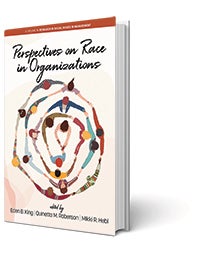Faculty Books
Recent publications by Rice faculty authors
Winter 2024

Up Home
One Girl's Journey
Ruth J. Simmons
Random House 2023
Growing up in the East Texas town of Grapeland, where her parents were sharecroppers on a cotton plantation, Ruth Simmons — born Ruth Jean Stubblefield, the youngest of 12 children, in 1945 — never dreamed that one day she’d become a pioneering figure in education.
When she was named president of Brown University in 2001, she became the first Black woman to lead an Ivy League institution. At Brown, and as president of Smith College and Prairie View A&M University, Texas’ oldest historically Black university, she made an indelible mark on the schools’ curricula and their culture — so much so that in 2001, Time magazine called her “the moral compass of the school she governs.”
Simmons, who joined the Rice faculty last spring as a President’s Distinguished Fellow, developed her own moral compass in Grapeland and in Houston’s Fifth Ward, where her family moved in 1952. Her memoir, “Up Home,” documents these early formative years when she overcame daunting challenges and found opportunities to develop her sharp intellect and pursue ambitious goals — what she calls the “imagined castles” she built in her mind from a young age, knowing they’d most likely be washed away.

“Although I did not by any means witness firsthand the worst of what my parents and the rest of my family experienced in Grapeland, I was certainly made aware that being Black enclosed me in a web of stereotypes which I would not likely escape,” she writes. “I had no thought that I would be exempt from the treatment my parents recounted from their past.”
Despite bitter hardships, including losing her mother to kidney failure when Simmons was just 15 and her father’s apparent indifference to his children, Simmons found supporters who recognized and helped nurture her immense talent. These included neighbors, teachers and her older siblings, who had few resources to spare but shared what they could — and that made all the difference.
The memoir ends with Simmons’ college years but hints at her later accomplishments, offering inspiration to other young people that “they are born not to be the person that history, limited resources and others dictate but, rather, the person that they are willing to pour their heart and soul into becoming.”
At Rice, Simmons advises the president’s office and collaborates with faculty and staff to build programs that will help develop future leaders, as well as provides input on the development of Rice’s Center for African and African American Studies. She is a former director of African American studies at Princeton University, and in 2003 she led the Slavery and Justice Initiative at Brown, which spawned similar initiatives around the world. — Jennifer Latson

Perspectives on Race in Organizations
Eden B. King ’01, ’04, ’06, Quinetta M. Roberson and Mikki R. Hebl, Eds.
Information Age Publishing (2023)
In the wake of multiple grave racial events in 2020, including the murder of George Floyd and violent attacks on Asian communities, companies around America responded by proclaiming their commitment to inclusivity and anti-racism. Scholarship on race in the workplace has been underway for decades, and modern research describes continued struggles and important measures that individuals and organizations can adopt to protect those targeted with bias and discrimination. The new book “Perspectives on Race in Organizations” — the fifth work in the series “Research in Social Issues in Management” — tackles these topics and more.
Lynette S. Autrey Professor of Psychological Sciences Eden King and Martha and Henry Malcolm Lovett Chair of Psychological Sciences Mikki Hebl served as editors for the book, which highlights researchers whom the editors describe as “experts and trailblazers for building a science around race at work.”
The volume provides a response to the expanding of public consciousness as it relates to race and racism in the workplace, with the stated objective of “building understanding and kindling new directions.” The book features 17 experts, including several alumni from Rice’s psychological sciences graduate program. According to the editors, their reflections provide “poignant examples of why scholarship on race continues to be of critical importance to management science.” — Kim Philippi

The Deadly Rise of Anti-science
A Scientist’s Warning
Peter J. Hotez
Johns Hopkins University Press, 2023
Anti-vaccine activists have been around for decades. At first, as members of grassroots groups on the social fringes, they promoted the unsubstantiated claim that vaccines cause autism. More recently, they’ve become more vocal and more mainstream — and their claims have become more audacious and all-encompassing. “Increasingly, the far-right extremists have adopted what I consider anti-science activism, turning it into a new form of aggression against both science and scientists,” writes Dr. Peter J. Hotez. He should know: He’s been a target of vaccine opponents since the early days.
In his latest book, “The Deadly Rise of Anti-science,” Hotez argues that this new, expanded form of anti-science activism threatens both America’s national security and its global reputation as an incubator for groundbreaking scientific research. The Baker Institute fellow in disease and poverty at Rice and the dean of the National School of Tropical Medicine at Baylor College of Medicine, Hotez documents some of the violent threats he’s received over the years, particularly as a result of his efforts to develop a patent-free COVID-19 vaccine.
But his chief focus is the threat the anti-vaccine movement poses to the health of Americans, more than 200,000 of whom died during the COVID-19 pandemic because they refused vaccines. “America is descending into a period of darkness, with scientists portrayed as enemies,” he writes. “[But] it is not too late to stem the tide.” — JL
